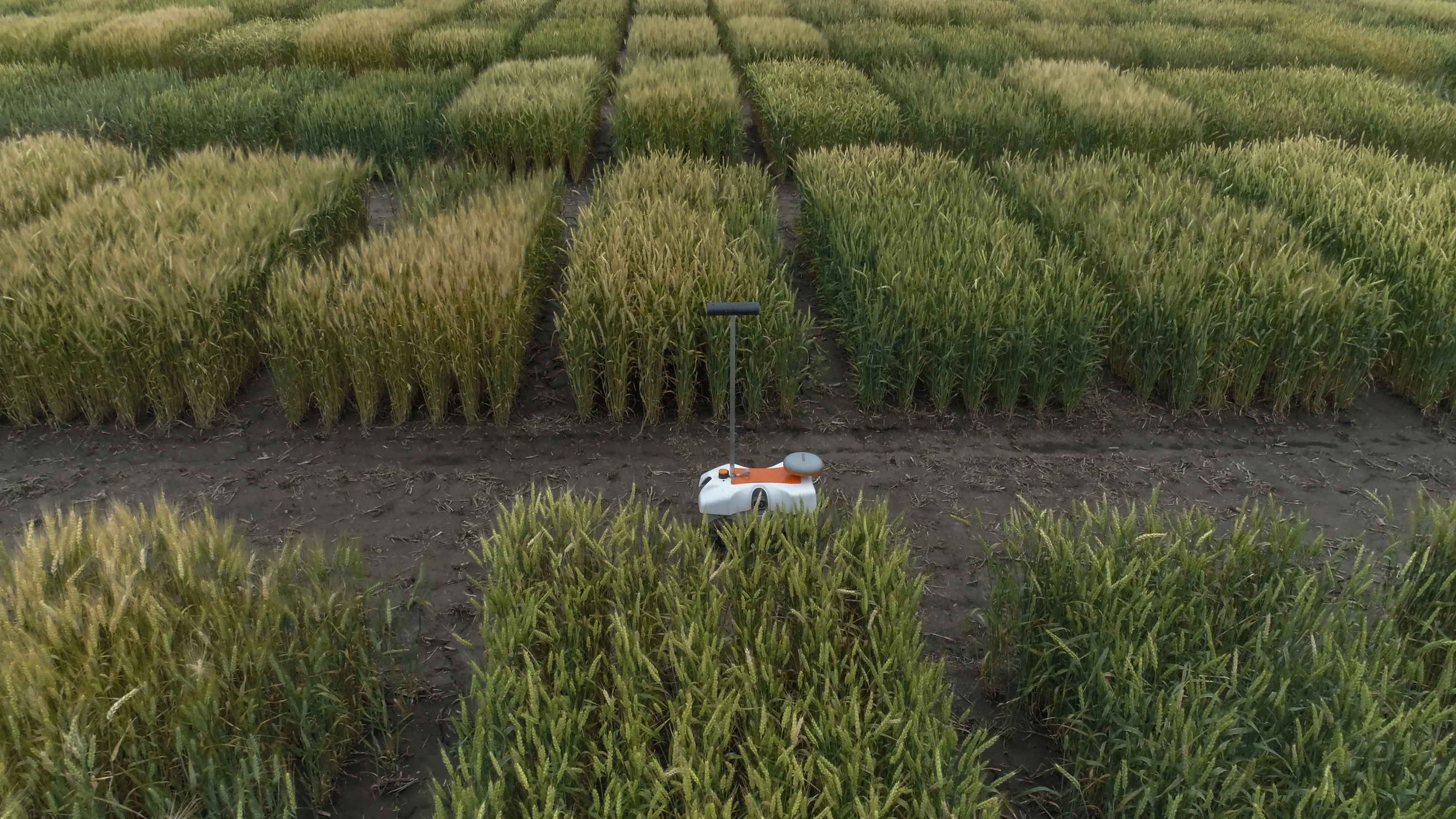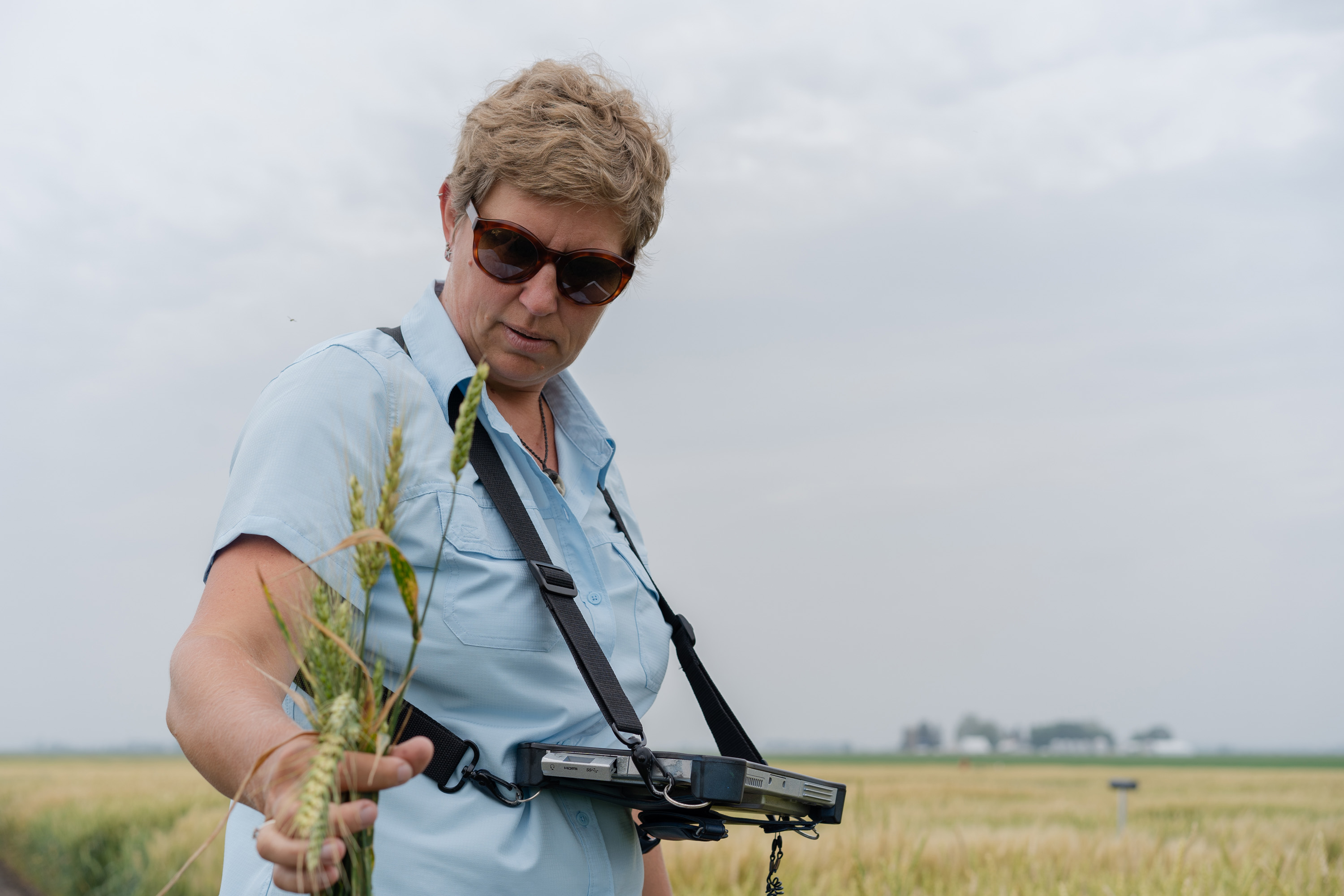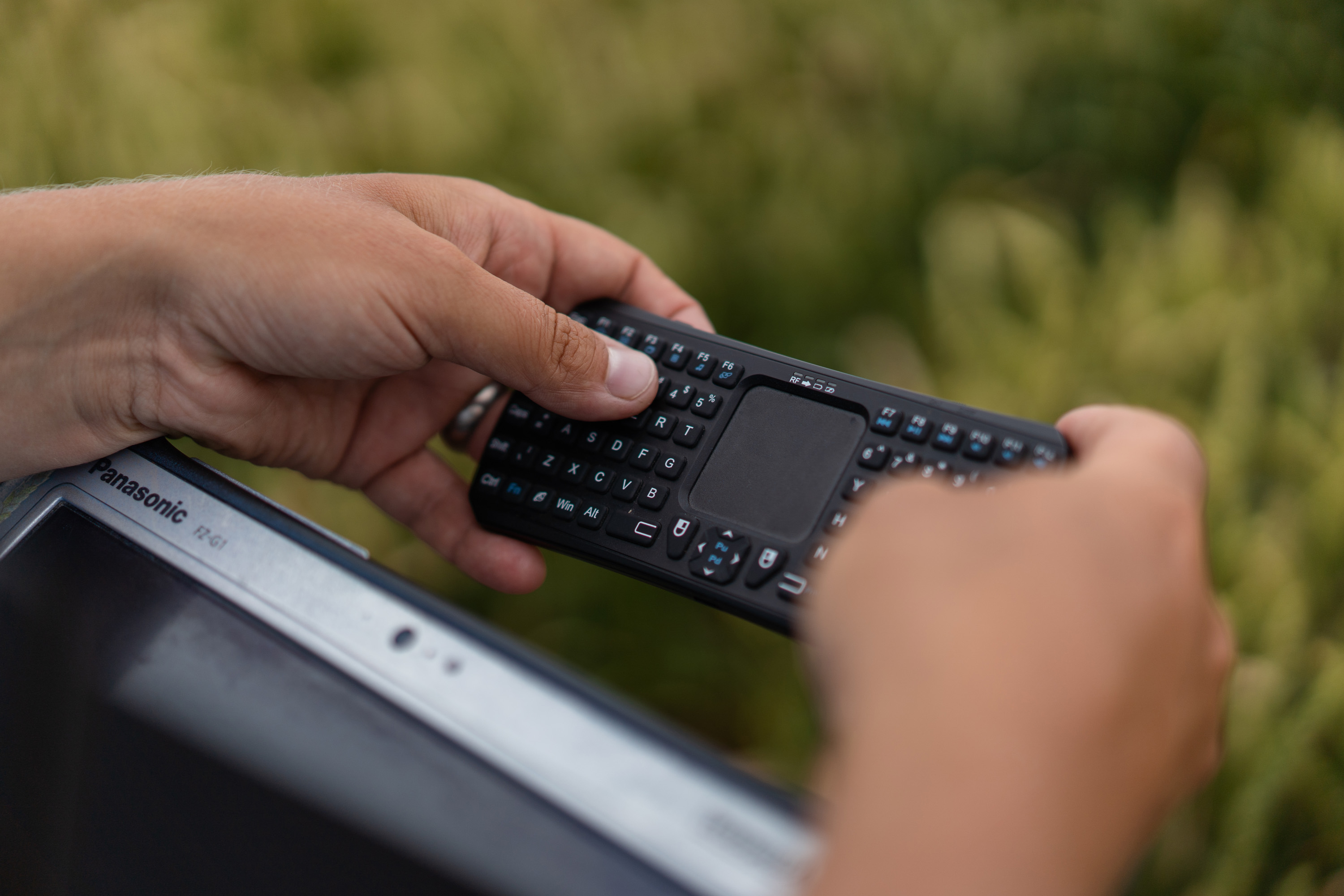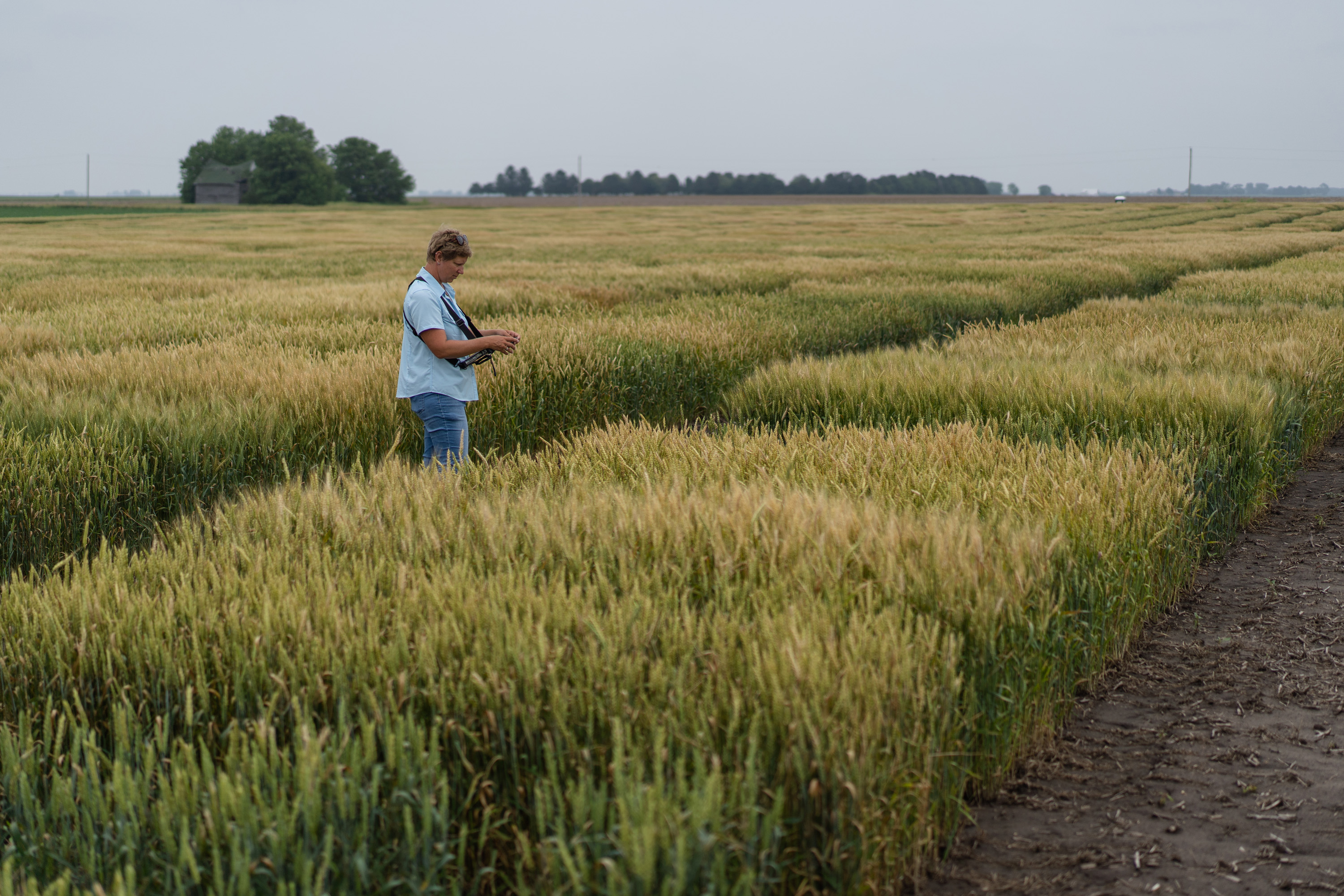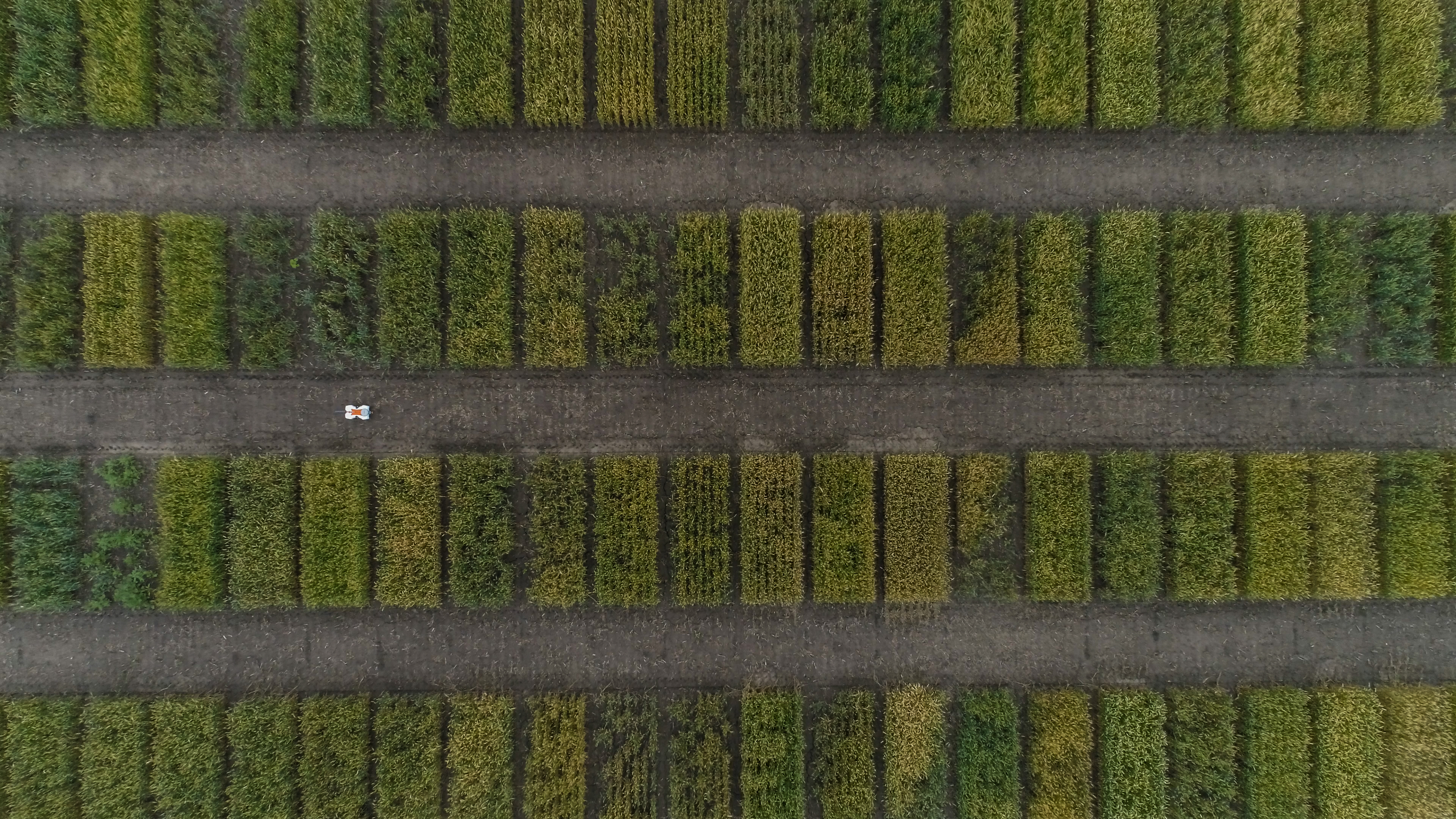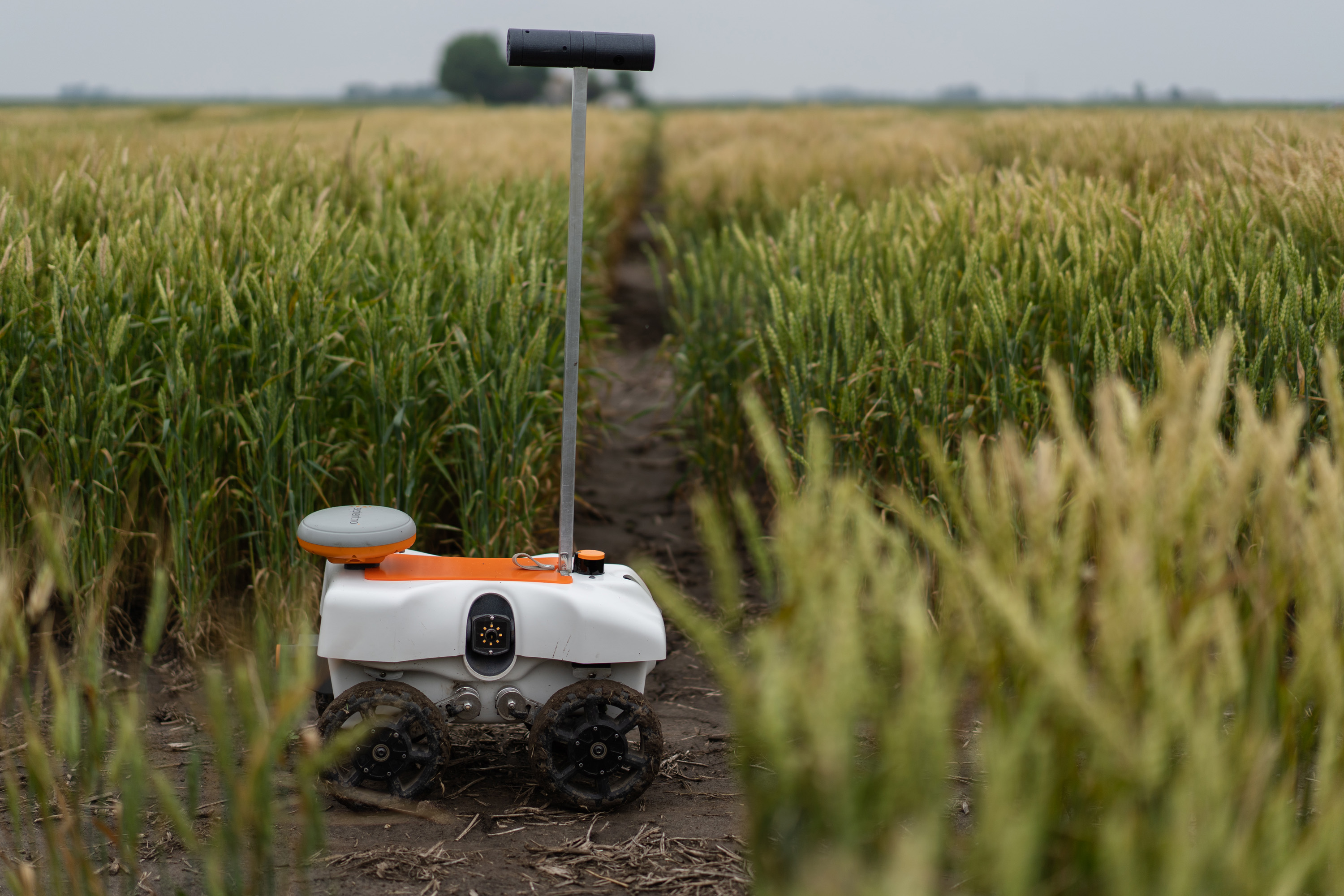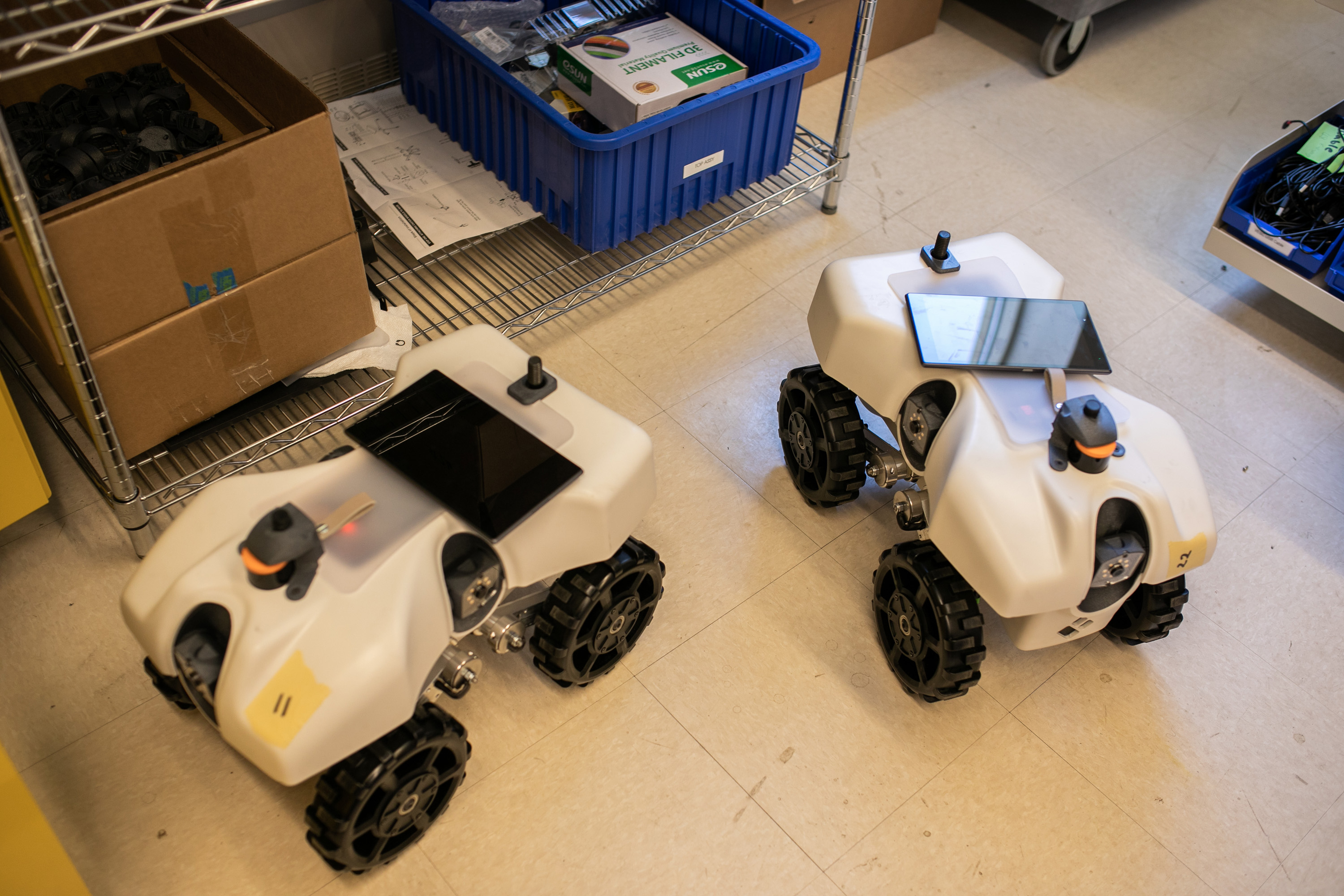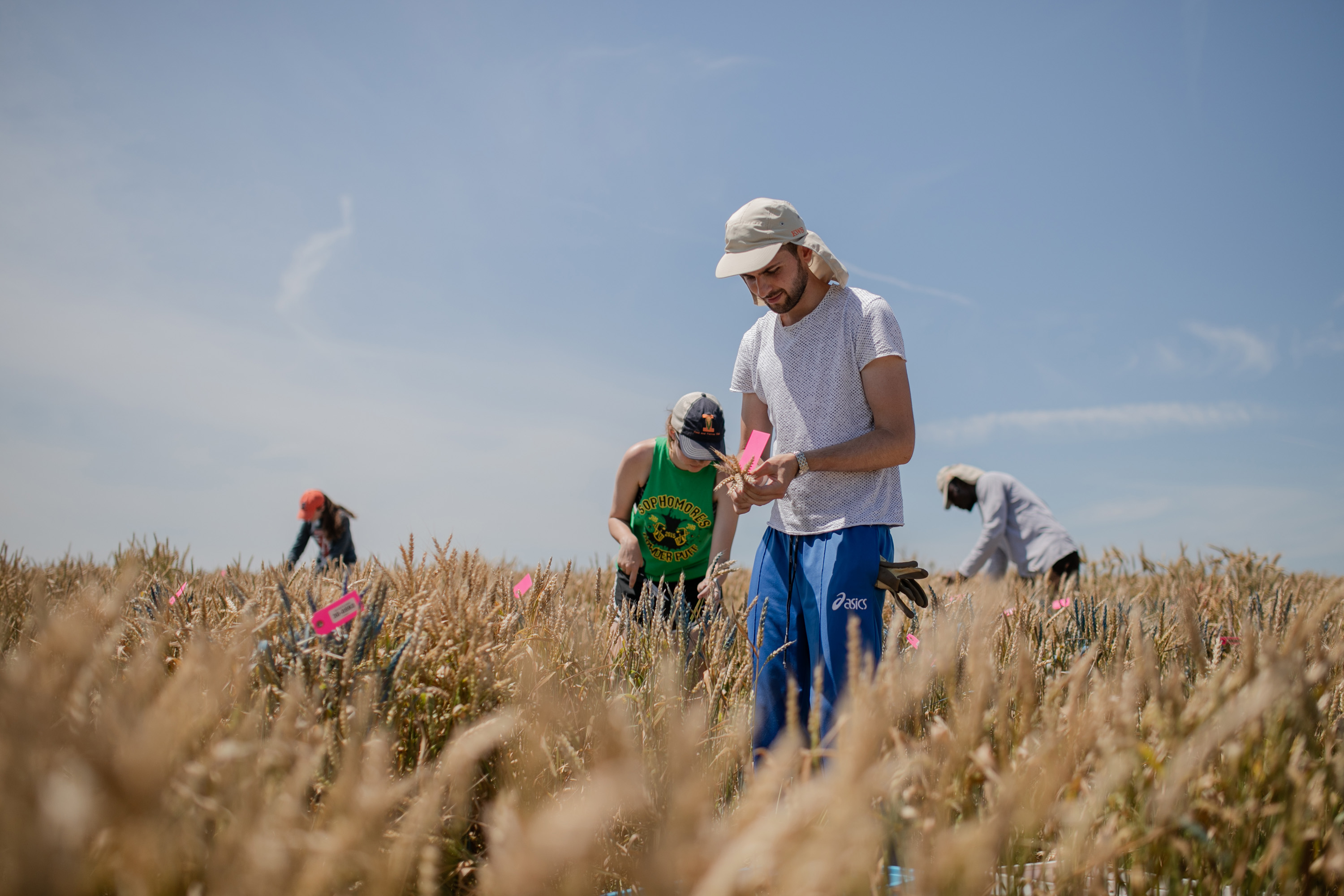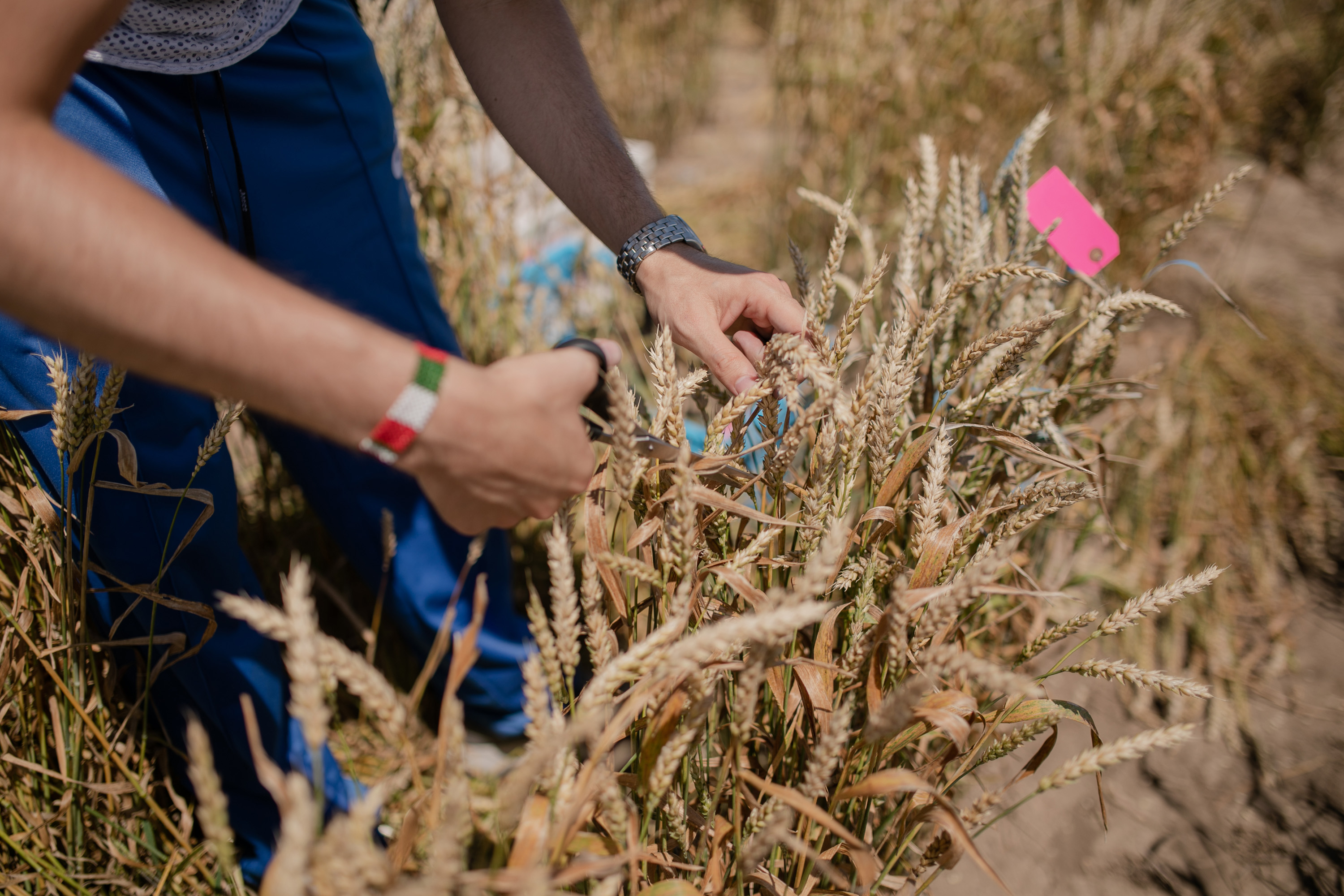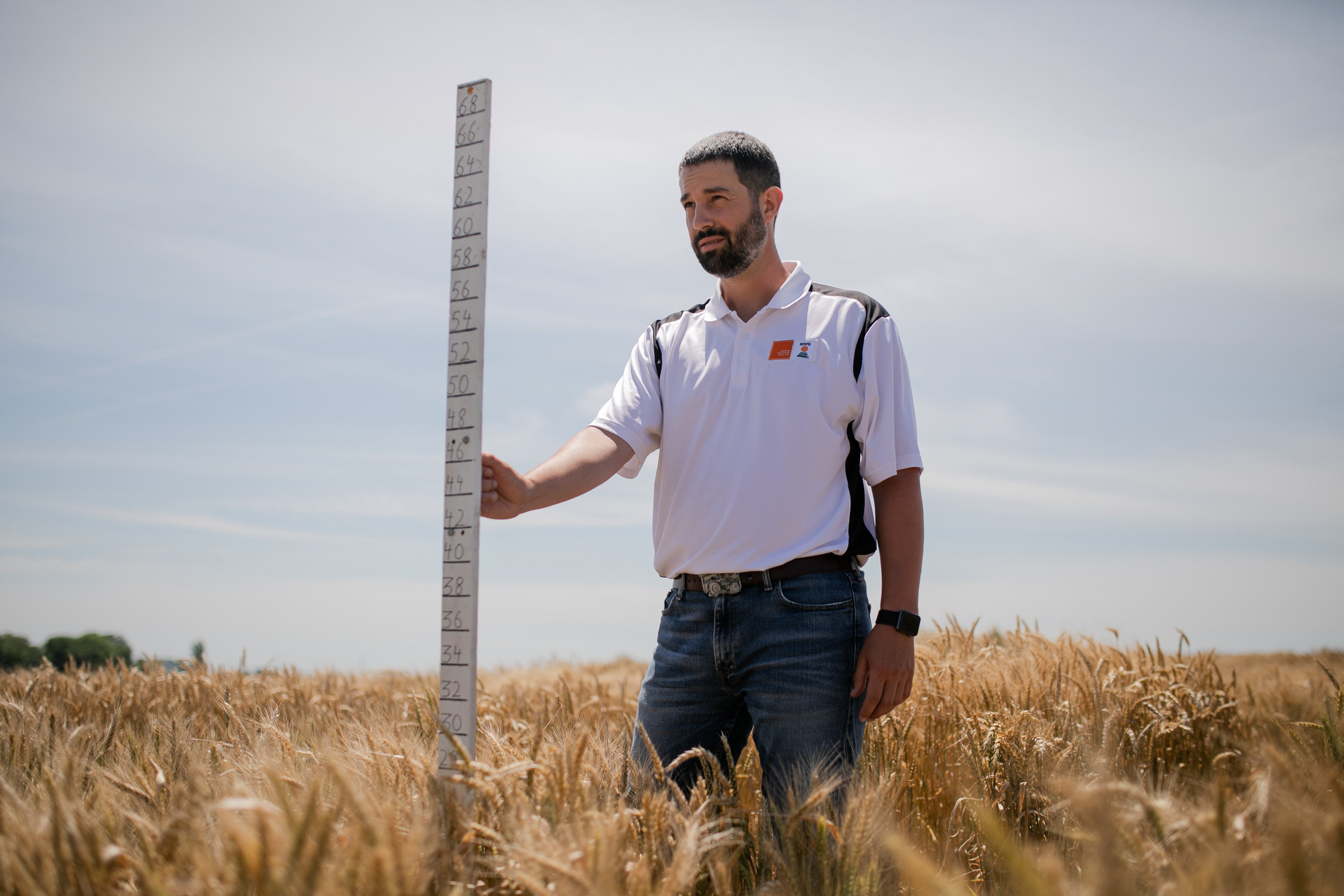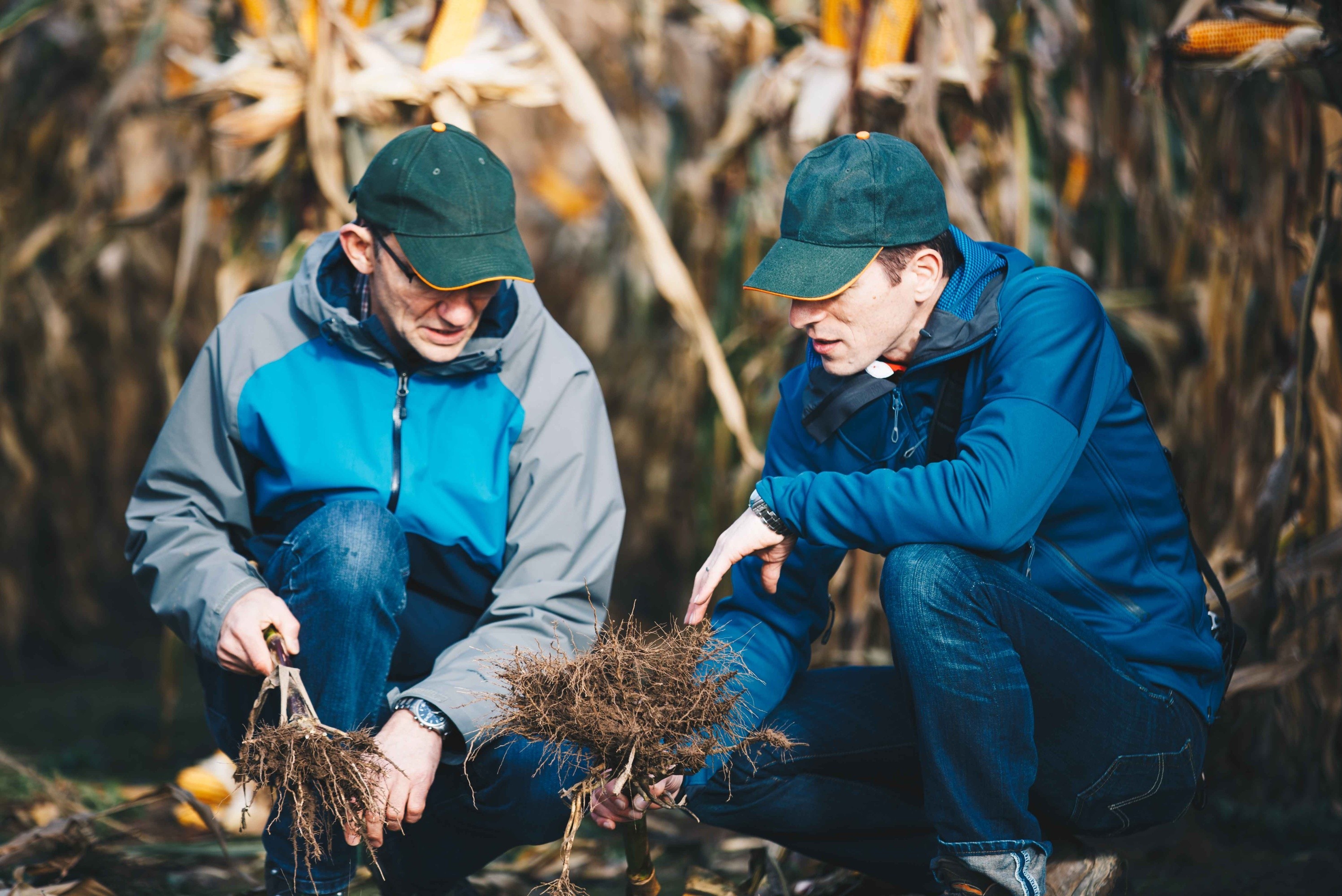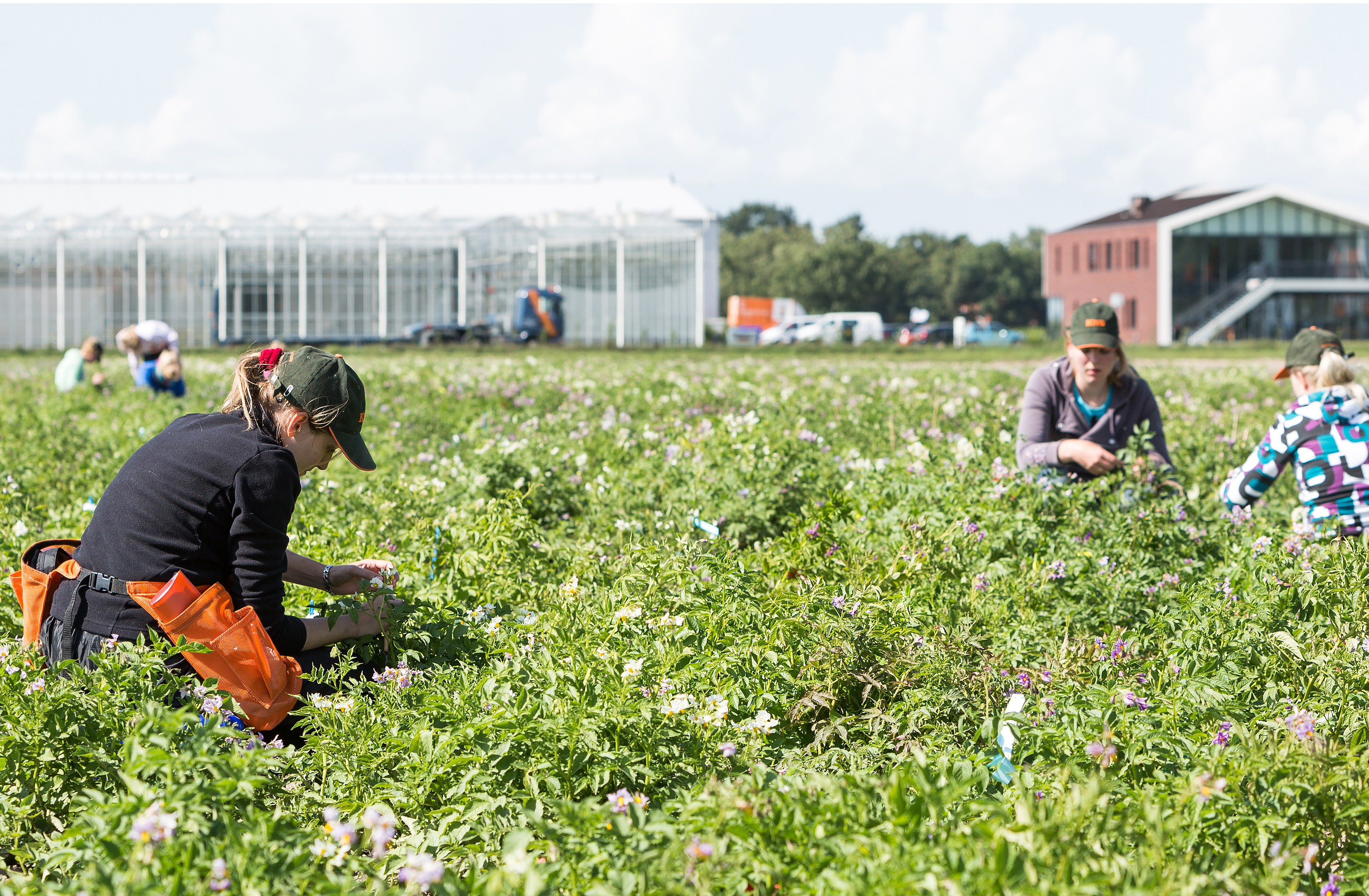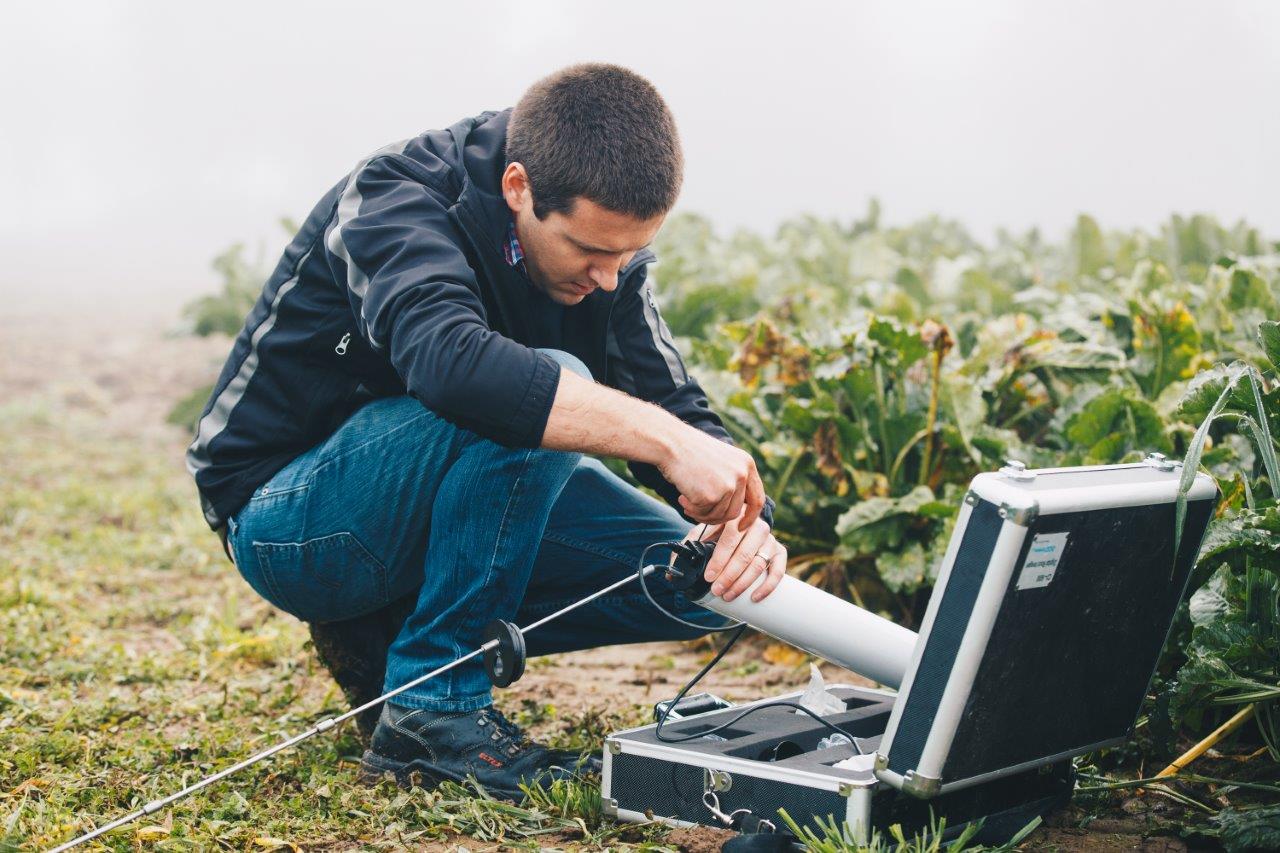A field with a future: Artificial intelligence for better seed
Artificial intelligence is gaining in importance in seed breeding. KWS is currently developing and conducting tests with a field robot in the U.S. to find out how plant traits can be identified automatically and precisely to support variety selection decisions and enable conclusions that will help improve yields and resistances in agricultural crops.
Phenotyping – a look at the plant
To ensure plants are doing well and growing, breeders have to inspect them repeatedly – out in the field, i.e. where they grow with their genetic makeup (genotype) under environmental influences.
That requires a lot of time, but also a lot of breeding experience to assess existing or desired characteristics of the plant – their phenotype – and respond with appropriate breeding measures.
Modern technology can help in all of that and deliver additional information. KWS is therefore putting a great deal of work into developing new methods to automatically identify specific traits of plants. Images of fields or plots are taken from the ground or air, for example. They can be used on the computer to deduce information on traits. That requires close cooperation between IT specialists and experienced breeders.
What is artificial intelligence?
Artificial intelligence (AI) has long been a field of research. Decades ago, it delved into a distant future where machines assume important human tasks, a vision that has taken on more concrete form in the past years – as evidenced by voice assistants, voice translators, autonomous vehicles or detection of cancer and other diseases. For artificial intelligence to work, it needs huge volumes of data, commonly called big data.
AI can roughly be divided into three areas:
- Perception – such as voice, text, picture or facial recognition.
- Learning – such as deep learning and machine learning
- Application – such as the use of robots like TerraSentia.
Discover more
Your contact person

